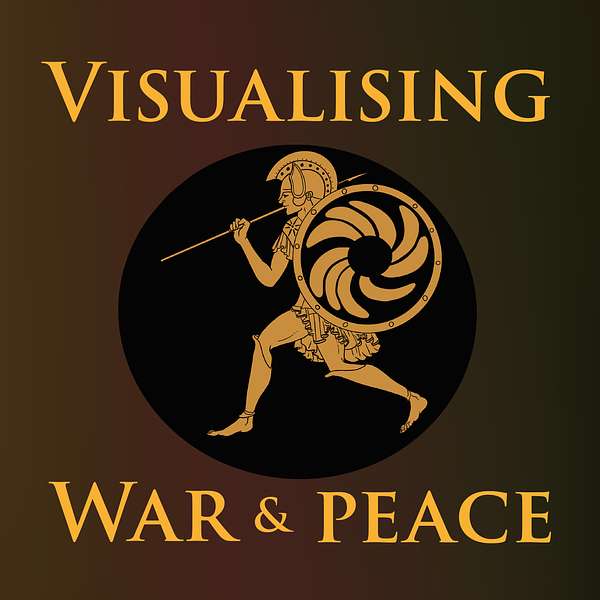
Visualising War and Peace
How do war stories work? And what do they do to us? Join University of St Andrews historian Alice König and colleagues as they explore how war and peace get presented in art, text, film and music. With the help of expert guests, they unpick conflict stories from all sorts of different periods and places. And they ask how the tales we tell and the pictures we paint of peace and war influence us as individuals and shape the societies we live in.
Visualising War and Peace
How can children and young people help us re-visualise war?
Please note: this episode was recorded before recent events in Ukraine. We stand in solidarity with everyone caught up in this terrible conflict, and our thoughts are particularly with its youngest victims. Children's voices on conflict matter more than ever at present.
This episode is no. 50 in the series! Listeners might remember that our first guest on the podcast was Lady Lucy French, the founder of Never Such Innocence, an organisation which gives children and young people a voice on conflict. In this episode, Alice interviews three Never Such Innocence Ambassadors - Molly Meleady-Hanley, Jasleen Singh, and Vasko Stamboliev - to help kick-start a new Visualising War project looking at the forces that influence young people's habits of visualising both war and peace.
In this new project we will be collaborating with a wide range of researchers in childhood studies, critical security studies, peace studies and futures thinking, to build an extensive network of academics and practitioners to ask some of the following questions:
- What kinds of war stories are children of different ages most regularly exposed to in different parts of the world (through films, gaming, school curricula, local folklore, graffiti, news reports, and so on)? What aspects of war dominate the narratives that children are exposed to? And what narratives about war’s aftermath, conflict transformation and peace-building tend to circulate in the media that children most frequently engage with?
- What do children and young people think about dominant modes of representing war and peace in different media? How do they describe the impact which different narratives of war and peace have had on them? And how differently might they represent or narrate war, conflict transformation and peace, if they were in charge of the storytelling themselves?
- Finally, what impact can children’s voices have on entrenched adult habits of visualising war and peace, both now and in the future?
In the podcast, Molly, Jasleen and Vasko share their memories of the war stories they grew up with, and they reflect on how war and peace were taught in the different school systems (in Greece, Serbia, Australia, Ireland and England) which they were part of. We dive into the poems, speeches and artwork which they have authored themselves, to express their own views on conflicts past, present and future. We discuss what impact children's perspectives can have in helping all of us re-visualise conflict from many different angles. And they explain how empowering it has been to have their voices heard, thanks to Never Such Innocence. Their experiences underline the vital importance of involving children in conversations about war and peace, and we celebrate the amazing work done by Never Such Innocence in bringing young people from all around their world into dialogue with each other and in giving them opportunities to address world leaders in lots of different places, from Buckingham Palace to the Bundestag.
We hope you enjoy the episode! You can read Molly and Jasleen's poems and see Vasko's artwork in this blog, and you can find out more about Never Such Innocence via their website.
For a version of our podcast with close captions, please use this link. For more information about individuals and their projects, please visit the University of St Andrews Visualising War website.
Music composed by Jonathan Young
Sound mixing by Zofia Guertin